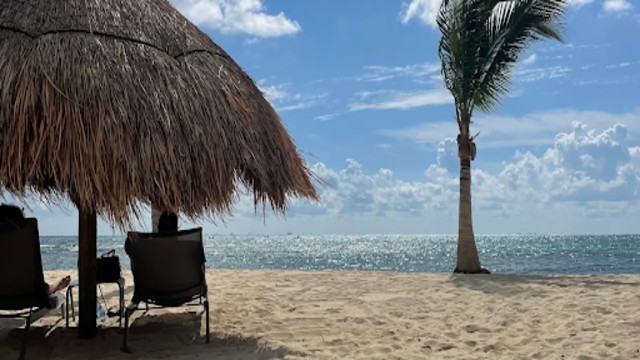
Photo: A sunny day by the sea in Playa del Carmen, Mexico. Travel Pulse
The U.S. State Department has shared the latest travel advice for Mexico. It offers guidance for each Mexican state rather than a general alert for the whole country. The good news is that most popular tourist spots in Mexico are still safe for visitors this spring.
Safety remains the main focus, especially because of crime concerns. However, officials say many favorite travel places are open and welcoming. The state of Yucatan, for example, has earned a Level 1 travel rating. That means travelers can take normal safety steps while exploring places like Chichen Itza and Merida.
Only two Mexican states have received the Level 1 rating. Most others fall under Level 2. This means travelers should stay alert but don’t need to avoid visiting. States in this category include Baja California Sur, Mexico City, Oaxaca, Puebla, Nayarit, Coahuila, and Quintana Roo. Quintana Roo is home to Cancun, Playa del Carmen, Tulum, and Cozumel.
Jalisco, which includes popular cities like Puerto Vallarta and Guadalajara, has been rated Level 3. This means travelers should reconsider visiting certain parts due to the risk of crime and kidnapping. Still, the U.S. government says its workers face no extra restrictions when traveling to tourist areas like Puerto Vallarta, Guadalajara, Chapala, and Ajijic. That means these cities are still safe for most tourists.
Guanajuato also falls under Level 3. It includes the famous city of San Miguel de Allende, recently named the best city in the world by a major travel magazine. Despite the Level 3 label, no special restrictions apply to government workers visiting tourist spots in this state either.
Many travelers to Mexico stay at well-known resorts and hotels. These areas are often very secure. Most offer all-inclusive packages and private security. They also tend to be located in safer zones.
Still, travelers should take basic precautions. Officials suggest not traveling at night and staying away from unknown local bars, nightclubs, or casinos. Travelers should avoid wearing flashy jewelry or expensive watches. It’s also wise to let loved ones know your travel plans.
Experts also advise travelers to sign up for the Smart Traveler Enrollment Program (STEP). This free program offers alerts about travel safety. It also helps U.S. citizens get help quickly during emergencies abroad.
Even though the advisory may sound concerning, it helps travelers stay informed. Most major tourist areas remain safe, especially if visitors use common sense. As always, a little caution can go a long way.















